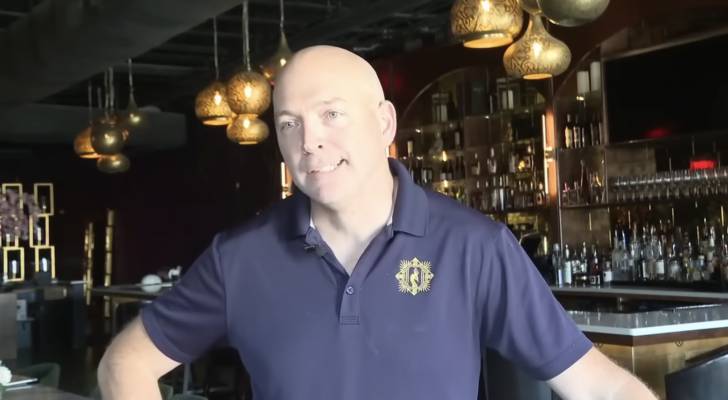
The familiar refrain from Semisonic’s hit “Closing Time” has long been a last-call anthem for bars, but in South Carolina, many establishments fear they’ll be closing for good.
Skyrocketing liquor liability insurance premiums, driven by a 2017 requiring businesses serving alcohol after 5 p.m. to carry $1 million in liability coverage are forcing some bars and restaurants to shut their doors permanently.
Don’t miss
- I’m 49 years old and have nothing saved for retirement — what should I do? Don’t panic. Here are 5 of the easiest ways you can catch up (and fast)
- Thanks to Jeff Bezos, you can now become a landlord for as little as $100 — and no, you don’t have to deal with tenants or fix freezers. Here’s how
- Gain potential quarterly income through this $1B private real estate fund — even if you’re not a millionaire. Here’s how to get started with as little as $10
The Brew Cellar, a beloved establishment in Charleston, announced its closure after 11 years in business, citing rising insurance costs as the primary reason.
"We made it through COVID, and we’re getting taken down by laws 11 years after being open. It’s like a death in the family, honestly," owner Ryan Hendrick told ABC 4 News.
State lawmakers are pushing for legislative changes to help restaurants and bars keep their doors open. State Senator Ed Sutton said he believes a solution can be found.
“We got insurance companies on one side fighting, and we got trial attorneys on the other side fighting with each other," he said. "In the middle, the person getting the short of the stick is that small business owner," he told ABC 4 News.
Laws and effect
Why are the rates soaring now? The issue stems from the 2017 law requiring all businesses that serve alcohol after 5:00 p.m. to carry at least $1 million in liquor liability coverage.
The legislation was intended to ensure that victims of alcohol-related incidents could receive compensation. However, it has also driven up insurance costs for business owners. Many insurance companies have either exited the South Carolina market or raised their rates, making it challenging for small establishments to afford the required coverage.
Why is the impact hitting businesses now? Most insurance policies renew annually, meaning rate hikes happen gradually, not all at once. As insurers reassessed risk and adjusted pricing over time, premiums steadily climbed — until they became unsustainable for many bars and restaurants.
Zach Dennis, owner of the bar Peacock and an insurance agent, has seen both sides of the issue.
"I have clients right now whose renewals are coming through that, for the first time, have to answer the question: Do I renew my insurance, or do I close my doors? Because I cannot continue to make money or operate in this economy." Dennis shared.
Read more: Want an extra $1,300,000 when you retire? Dave Ramsey says this 7-step plan ‘works every single time’ to kill debt, get rich in America — and that ‘anyone’ can do it
Lawmakers and the fix
In response to this crisis, Sutton has introduced a bill to amend the current liquor liability laws. The proposed changes would refine liability standards and shift the burden of proof to focus on clear, observable signs of intoxication rather than imposing blanket liability. This could reduce financial risks for responsible establishments while still allowing victims to seek damages. Sutton said he hopes this will lead to lower insurance rates for businesses.
"We need to land in a spot where rates aren’t $100,000 for a liquor liability premium, but also allow for victims of operators that overserved, don’t check IDs, or don’t do the proper thing for those victims to be compensated,” Sutton said, emphasizing the need for balance. “And I absolutely believe we can get there."
Another proposal seeks to reduce the mandatory insurance coverage from $1 million to $250,000 for establishments that implement specific risk mitigation measures, such as comprehensive server training programs.
Sutton’s bill has gained support from the hospitality industry and business community, who see it as essential to preventing closures and preserving South Carolina’s vibrant culinary scene. He plans to have the legislation on the governor’s desk by May.
However, for some businesses, the changes may come too late. The Brew Cellar plans to close its doors on February 17, just two days after its 11th anniversary.
Hendrick urged patrons to support their local establishments before it’s too late, "We’re not going to beg for people to come through to keep our doors open, but go support your favorite places; they need it."
On March 5, the South Carolina House of Representatives unanimously passed a bill that would reform the state’s liquor liability law. However, the Senate is still addressing the liability problem along with auto insurance, medical malpractice and how fault is divvied up in civil lawsuits in a tort reform.
What to read next
- Don’t have the cash to pay Uncle Sam in 2025? You may already be eligible for a ‘streamlined’ handshake with the IRS — here’s how it works and how it can potentially save you thousands
- Here are 5 ‘must have’ items that Americans (almost) always overpay for — and very quickly regret. How many are hurting you?
- Robert Kiyosaki warns of a ‘Greater Depression’ coming to the US — with millions of Americans going poor. But he says these 2 ‘easy-money’ assets will bring in great wealth. How to get in now
This article provides information only and should not be construed as advice. It is provided without warranty of any kind.